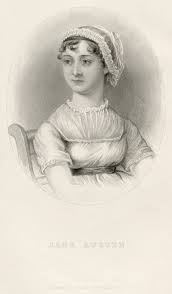A Writer’s Ode to Seeing

I love to gaze around at my surroundings. It’s one of my favorite things to do. I’m one of those distracted people who doesn’t immediately see that the light in front of me has turned green. But the way a person swings their arms when they cross the street or the fragmented glimpses from my side mirrors can be spellbinding to me. And I am always seeing new things. The other day while drinking my morning tea, I noticed that the crack in my ceiling has migrated and now looks like Richard Nixon’s profile.
When we look at things, most of us simply register what they are: a crack in the ceiling, a person crossing the street. But truly seeing is not simply identifying the name of the object one sees; in fact, it’s just the opposite. It means taking the object in so completely that you forget what it is you’re looking at. For example, I keep a pen on my desk where I write. When I hold it up and rotate it in my fingers, I become lost in the way the light rolls over its polished black surface. For a brief moment, the object I am holding ceases to be a “pen” and becomes a collection of traits: the movement of light, the polished sheen, etc. I am released from the language that describes it and I become solely involved with the sensation of seeing it.
“To see is to forget the name of the thing one sees,” the French philosopher and poet Paul Valéry said, and with this brief loss of language comes a loss of self. The thoughts about my life and the list of things I have to do disappear. The self-criticism, the esoteric questions like, “Who am I? And how do I matter?” and the judgment of others fall completely silent. The language to formulate these questions and notions simply isn’t there.
How and what we see are influenced by who we are. Cognitive scientist Alexandra Horowitz’s book, On Looking: Eleven Walks with Expert Eyes, is a meditation on this fact. An urban sociologist, an artist, a geologist, a physician, a sound designer, each with their unique perspectives, observes certain things and is blind to others.
We are wedded to our own perspective, and this in turn impedes us from seeing other perspectives. We can become entrenched in our own mindset, interpreting and determining what we see through our own limited experience. But deep engagement with our sense of sight allows us to transcend this limitation. It enables us to lose ourselves, and with that we gain the extraordinary ability to understand another viewpoint.
Consider this: On a recent train ride into Boston, a guy swaggered in and sat across from me. He was wearing oversized low-riding jeans. His white high-tops were untied. He wore a hoodie pulled up over a baseball cap. A heavy gold chain hung around his neck. He dropped in the seat across from me, stretched his legs out, secured his ear buds, and starting scrolling disinterestedly through his phone.
His high-tops, his gold chain, his hoodie—if all I had done was register these things, I might rely too heavily on assumptions. At its worst, this kind of superficial seeing is dangerous. Think Trayvon Martin, an unarmed boy who was shot and killed, targeted in part for the hoodie he wore.
But as the train pulled away, I looked closer. I noticed one of his sneakers had a hole in it, and I wondered where he got it. His jeans were brand new. His hoodie had tiny little shamrocks on it and his baseball cap was way too big. The lights from the subway tunnel flickered across his face. When he raised a hand to adjust an ear bud, I noticed his hands, soft looking and small, like my nephew Tyler’s. My eyes welled and a lump rose in my throat when I realized that no amount of swagger could hide the fact this guy was just a little boy.
Passive seeing reduces what we see, often to the point of stereotype. Active, careful seeing does the opposite. It overrides our preconceptions. It expands our view of other people and the world around us and gives us insight into one another. It literally clears the neurological pathways that make us feel.
Thoreau, who spent countless hours looking at nature, called this state of mind “reverie.” Reverie is the blissful loss of self in the revelation that self is only part of the all-encompassing whole. If you’ve ever stood on the edge of the Grand Canyon, you may be familiar with this feeling, but it can be achieved momentarily through looking carefully at almost anything; a pen, a boy, glimpses of something in a side view mirror.
The writer and philosopher Jean-Jacques Rousseau believed anything that distracted us from direct engagement with our surroundings was dangerous. “You have ruined Geneva,” he wrote to Voltaire when Voltaire introduced theater there in 1760. When we garner experience indirectly—according to Rousseau, this includes through plays and even books—we obscure our vision, which in turn degrades the nature of our insights. It diminishes our capacity to empathize, to feel for one another and our surroundings. Looking at a subject not directly, but in a photograph, Susan Sontag said, can lull the viewer into a false sense of understanding.
Bearing witness to each other and the planet is a solemn act. If we stop and truly observe our surroundings the way Thoreau did, we might be more inclined to save our planet. If we took the time to really see one another, we might appreciate better the value of every human being. We might find it easier to leave ourselves behind and step inside another viewpoint. And isn’t this, as writers and as human beings, exactly what we’re supposed to do?


